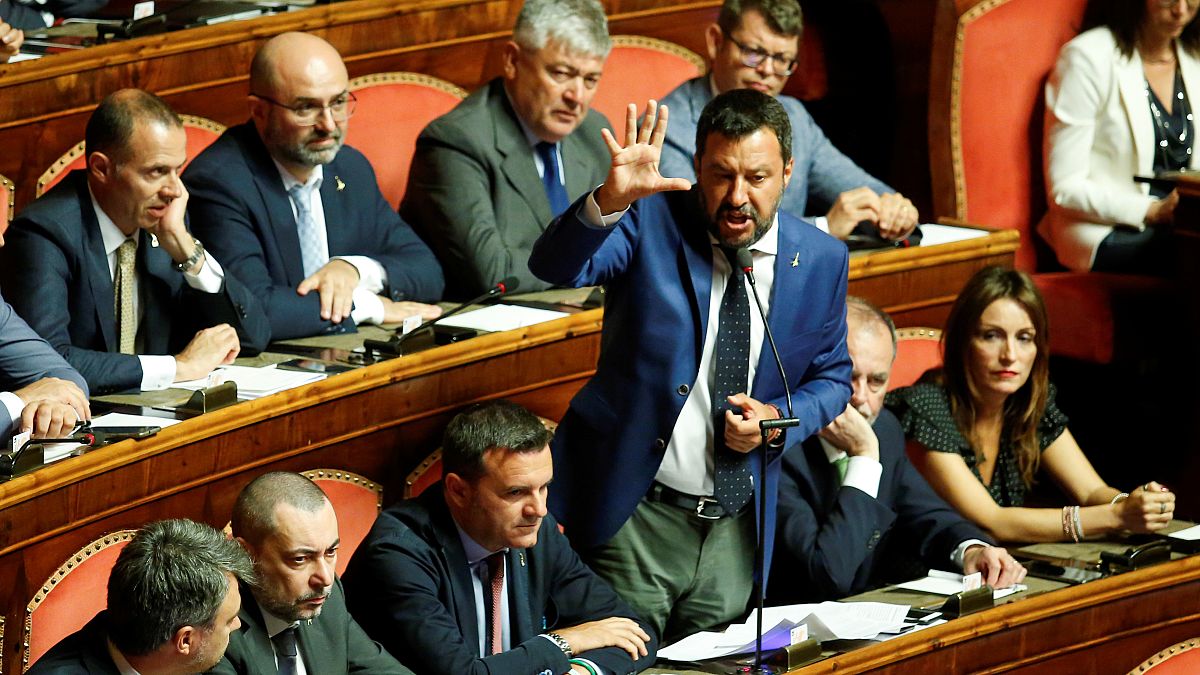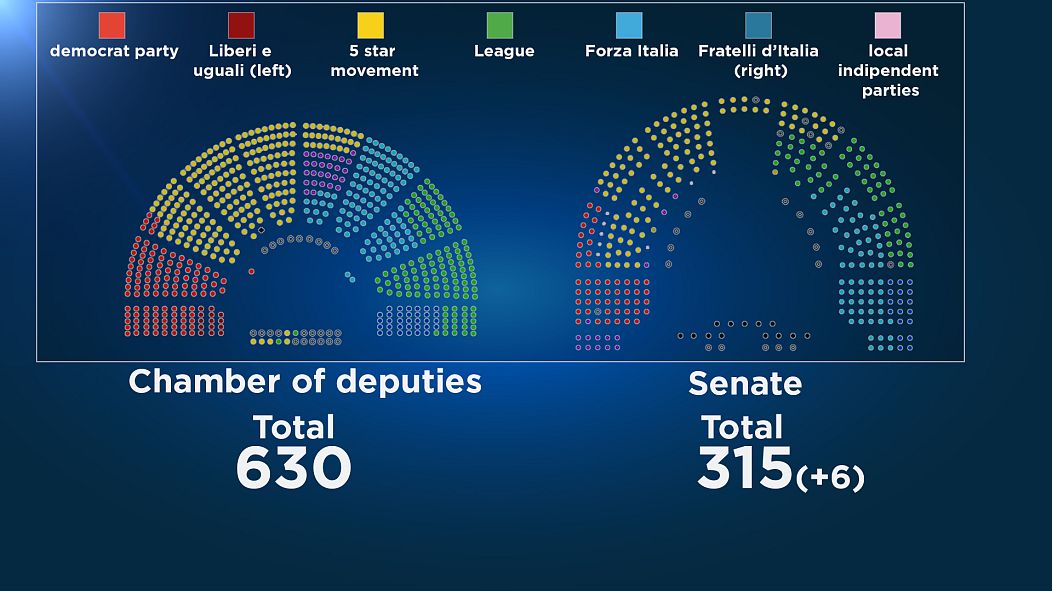The League has presented a no-confidence motion in the government but the Senate rejected its request for it to be debated on Wednesday, and instead decided that Prime Minister Giuseppe Conte should address the upper house over the crisis on August 20.
The Italian Senate on Tuesday postponed till next week further debate on an ongoing government crisis, frustrating a push by Matteo Salvini, leader of the far-right League party, for new elections.
While addressing the Senate during the special session, Salvini said he would accept a proposal from the Five-Star Movement's Luigi di Maio to cut the number of members of parliament and hold an election.
But instead, the Five-Star Movement said they did not accept the "compromise" unless Salvini retires his no-confidence motion.
How did we arrive at this point?
Italy's coalition government has been teetering on the brink of collapse for weeks.
Salvini said last week that his right-wing League party would no longer support the current alliance with the Five-Star Movement.
Salvini hopes there will be a new election as early as this autumn - as he tries to capitalise on the League's rising popularity.
His party is trying to pull the plug on its coalition with the anti-establishment Five-Star Movement, which currently holds the most seats in the chamber and the senate (see graphic below).
The coalition, which was an unlikely one at the outset, has held up for 14 months, but disagreements came to a head last week when Five-Star Movement tried to block plans for a high-speed alpine rail link between Turin and Lyon (TAV).
The League presented a no-confidence motion against prime minister Giuseppe Conte on Friday.
Shaky foundations
It took 88 days to form the coalition government following elections in March 2018. Matteo Salvini took the role of deputy prime minister as well as interior minister, as he vowed to crack down on undocumented migrants. Five-Star Movement leader Luigi Di Maio was also appointed deputy prime minister and labour minister. A relatively unknown lawyer, Giuseppe Conte, was picked to serve as prime minister.
It didn’t take long for cracks to appear in the alliance, with the two sides disagreeing over Five-Star Movement's election promise of launching a citizen’s income scheme to address poverty.
They have also clashed along the way on topics such as immigration, the League’s plan for a flat tax rate, and recently over who to support as the next EU Commission president. Five-Star Movement supported president-elect Ursula von der Leyen, while the League opposed her.
Breaking point
The League has jumped on the row over the rail-link (TAV) as an opportunity to present the coalition government as unworkable.
The line, which would connect Turin with Lyon, and include a 58-km tunnel through the Alps, is fiercely opposed by Five-Star Movement over environmental and monetary costs, but supported by the League and most other parties.
Following Five-Star Movement’s unsuccessful attempt to block the legislation, Salvini told Giuseppe Conte the alliance with Five-Star Movement had collapsed and “we should quickly give the choice back to the voters”.
The right-wing party said in a statement it was "useless to go ahead with daily quarrels", and listed a raft of areas in which it had a "different vision" from Five-Star Movement, including infrastructure, taxes, justice, and relations with the EU.
"Italy can no longer put up with the nos, we need yeses, we need to unblock, to build, to work -- enough is enough, we must go to elections," Salvini told supporters in Pescara during a rally.
Prime minister Conte refused to resign because he wants the crisis unleashed by Salvini to be the most transparent “in the history of the republic.'' The League are currently leading in the polls, and Salvini may see an early election as his chance to win power outright.

